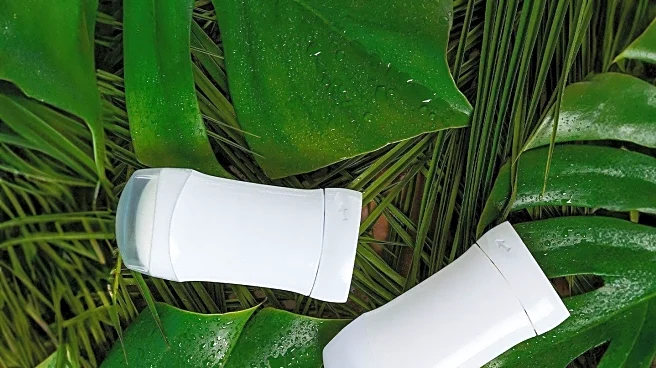What's Happening?
Natural deodorants are being increasingly considered as alternatives to traditional antiperspirants due to concerns over ingredients like aluminum and parabens. These products use natural components such as baking soda, coconut oil, and tapioca starch to absorb moisture and neutralize odor-causing bacteria. Dermatologists recommend formulations with ingredients like arrowroot powder and AHAs for effective odor control without affecting sweat production. Brands like Native and Megababe have been recognized for their gentle yet effective formulations, catering to those with sensitive skin.
Why It's Important?
The shift towards natural deodorants signifies a growing consumer awareness about the potential health impacts of synthetic ingredients found in conventional products. This trend is part of a larger movement towards clean beauty, where consumers prioritize products that are free from harmful chemicals. As more people opt for natural deodorants, the personal care industry may see a shift in product offerings, with companies investing in research and development to create safer, more effective alternatives. This could lead to increased market competition and innovation in the deodorant sector.
What's Next?
As the demand for natural deodorants continues to rise, brands may expand their product lines to include more scent options and formulations tailored to specific skin types. Regulatory bodies might also increase scrutiny on ingredient safety, potentially leading to new guidelines for product labeling and marketing. Consumer education will be crucial in helping individuals make informed choices about their personal care products, emphasizing the importance of understanding ingredient lists and their effects on health.
Beyond the Headlines
The popularity of natural deodorants also raises questions about the environmental impact of product packaging and ingredient sourcing. As consumers become more eco-conscious, brands may need to address these concerns by adopting sustainable practices. This could include using recyclable materials for packaging and ensuring ethical sourcing of natural ingredients. Additionally, the trend towards natural products may influence cultural attitudes towards beauty and hygiene, promoting a more holistic approach to personal care.










